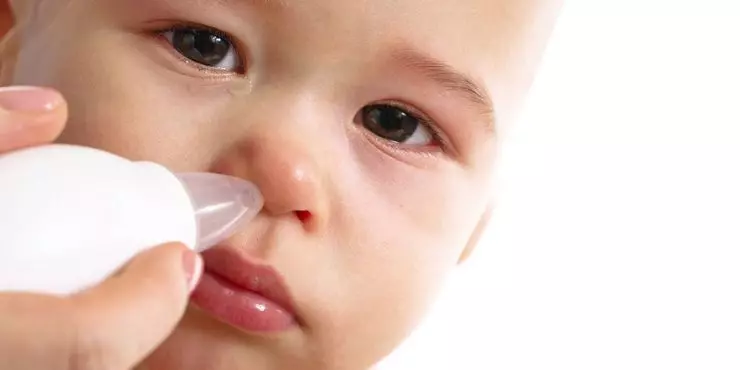
Your baby’s first cold can feel overwhelming—those tiny sniffles and little coughs tug at your heartstrings. As a family doctor and a mother myself, I know how upsetting it is to see your little one uncomfortable. The good news? Most colds are completely manageable at home with some TLC and simple remedies. Let’s walk through what you need to know when your baby catches their first cold.
Recognizing the Symptoms of a Cold in Infants
Colds in babies are caused by viruses, and while they can’t be cured with antibiotics, they will run their course with proper care. If you're wondering, "What are the symptoms of a cold in infants?" here’s what to look for:
- Stuffy or runny nose
- Sneezing
- Mild cough
- Slight fever (under 100.4°F for infants under three months, up to 101°F for older babies)
- Fussiness
- Difficulty feeding due to congestion
Most colds last 7-10 days. The first few days may be the worst, but as the virus runs its course, your little one will start feeling better.
Best Home Remedies for Infant Congestion and Coughs
Since over-the-counter cold medicines aren’t safe for babies under two, here are natural and doctor-approved ways to help your baby feel better:
1. Use Saline Drops and Nasal Suctioning
Saline drops help loosen mucus in your baby’s tiny nasal passages. After a few drops in each nostril, use a bulb syringe or nasal aspirator to gently suction out the mucus. This is especially helpful before feedings and bedtime.
2. Run a Humidifier for Infant Congestion
A cool-mist humidifier adds moisture to the air, helping to ease congestion in babies. Keep it clean by changing the water daily and following manufacturer instructions for cleaning.
3. Offer Plenty of Fluids
For babies under six months, continue breastfeeding or formula feeding. Hydration helps thin mucus and prevents dehydration. If your baby is older, small sips of water (if approved by your pediatrician) may help keep them comfortable.
4. Elevate the Head During Sleep
Slightly elevating your baby’s head (such as by placing a rolled-up towel under the crib mattress—not placed directly under the baby) can help with drainage and ease breathing. Always follow safe sleep guidelines—no loose blankets or pillows in the crib.
5. Provide Comfort and Rest
Extra snuggles, rocking, and skin-to-skin contact can soothe a sick baby. If your baby is struggling to sleep, holding them in an upright position while they nap may help with congestion. Just remember to stay awake yourself to monitor if Baby is not sleeping on their back.

When to Call the Doctor for Baby’s Cold
While most colds resolve on their own, some symptoms indicate it’s time to seek medical attention:
- Fever above 100.4°F in a baby under three months old
- Fever lasting more than three days in an older infant
- Rapid or labored breathing (watch for flaring nostrils, grunting, or chest retractions)
- Wheezing or persistent coughing in infants
- Significant decrease in milk/food intake
- Dehydration signs (fewer wet diapers, dry mouth, no tears when crying)
- Symptoms lasting more than 10 days or worsening instead of improving
Trust your instincts—if something doesn’t feel right, don’t hesitate to call your doctor.
How to Prevent Infant Colds
Newborns and infants are still building their immune systems, so it’s natural for them to catch colds. To help prevent colds in babies:
- Wash hands frequently (yours and visitors’)
- Avoid crowded places during peak cold and flu season
- Keep your baby away from sick individuals
- Ensure everyone around your baby is up to date on their vaccinations, including flu and pertussis (whooping cough)
Learn more about how to keep your little one safe during cold and flu season.
Patience and Extra Love – You Will Get Through it!
Your baby’s first cold may be tough, but remember—you’re doing a great job. With patience, care, and a little extra love, your little one will be back to their happy, giggling self in no time. If you ever have concerns, we at Northwest Family Clinics are here to support you every step of the way.
Other Articles You Might Like:
Keeping Your Newborn Healthy – How to Avoid Exposure to Unwanted Germs
What is RSV and is my Baby at Risk?
Baby CPR and First Aid, A Skill Everyone Should Have
10 Questions Every New Parent Has About Caring for Their Newborn